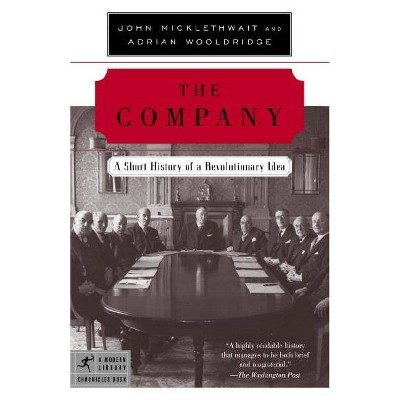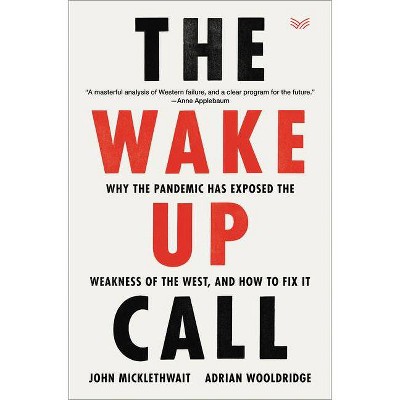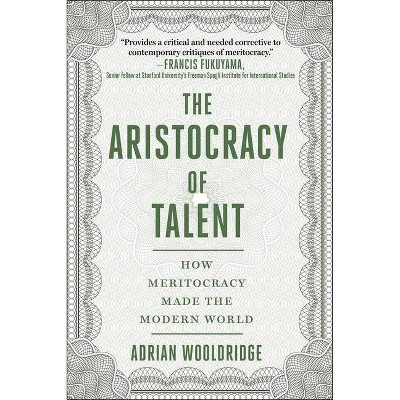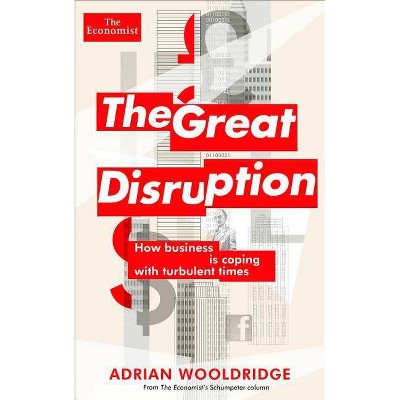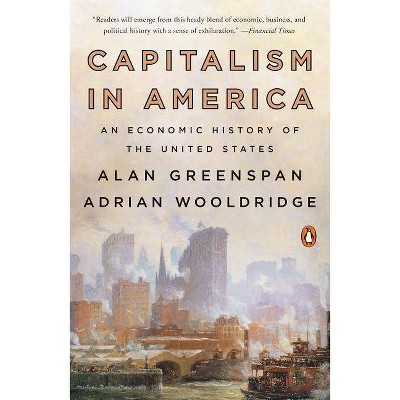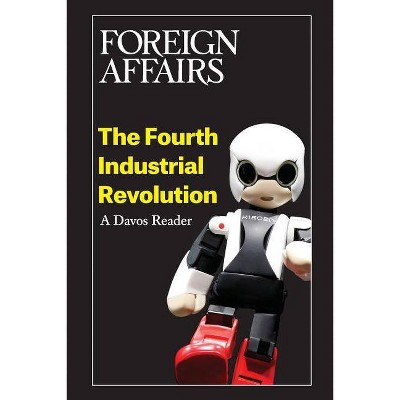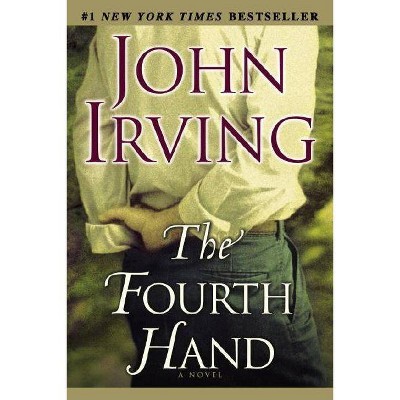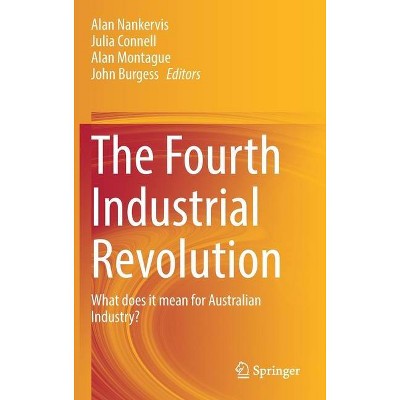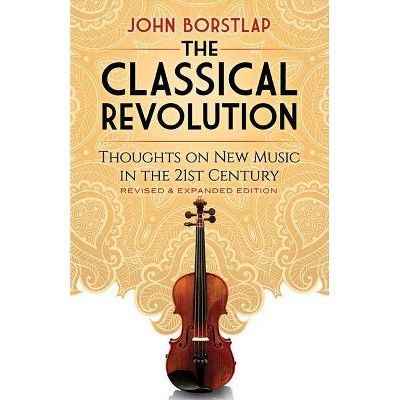The Fourth Revolution - by John Micklethwait & Adrian Wooldridge (Paperback)
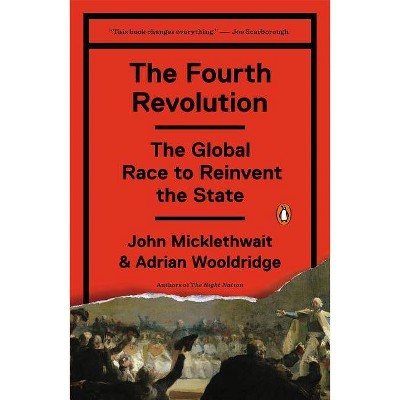
Similar Products
Products of same category from the store
AllProduct info
<p/><br></br><p><b> About the Book </b></p></br></br>Presents the argument that our current crisis in government is nothing less than the fourth radical transition in the history of the nation-state. The race to get government right is not just a race of efficiency. It is a race to see which political values will triumph in the twenty-first century--the liberal values of democracy and liberty or the authoritarian values of command and control.<p/><br></br><p><b> Book Synopsis </b></p></br></br><b>From the bestselling authors of <i>The Right Nation</i>, a visionary argument that our current crisis in government is nothing less than the fourth radical transition in the history of the nation-state</b> <p/> Dysfunctional government: It's become a cliché, and most of us are resigned to the fact that nothing is ever going to change. As John Micklethwait and Adrian Wooldridge show us, that is a seriously limited view of things. In fact, there have been three great revolutions in government in the history of the modern world. The West has led these revolutions, but now we are in the midst of a fourth revolution, and it is Western government that is in danger of being left behind. <p/> Now, things really are different. The West's debt load is unsustainable. The developing world has harvested the low-hanging fruits. Industrialization has transformed all the peasant economies it had left to transform, and the toxic side effects of rapid developing world growth are adding to the bill. From Washington to Detroit, from Brasilia to New Delhi, there is a dual crisis of political legitimacy and political effectiveness. <p/> <i>The Fourth Revolution</i> crystallizes the scope of the crisis and points forward to our future. The authors enjoy extraordinary access to influential figures and forces the world over, and the book is a global tour of the innovators in how power is to be wielded. The age of big government is over; the age of smart government has begun. Many of the ideas the authors discuss seem outlandish now, but the center of gravity is moving quickly. <p/> This tour drives home a powerful argument: that countries' success depends overwhelmingly on their ability to reinvent the state. And that much of the West--and particularly the United States--is failing badly in its task. China is making rapid progress with government reform at the same time as America is falling badly behind. Washington is gridlocked, and America is in danger of squandering its huge advantages from its powerful economy because of failing government. And flailing democracies like India look enviously at China's state-of-the-art airports and expanding universities. <p/> The race to get government right is not just a race of efficiency. It is a race to see which political values will triumph in the twenty-first century--the liberal values of democracy and liberty or the authoritarian values of command and control. The stakes could not be higher.<p/><br></br><p><b> Review Quotes </b></p></br></br><br><b>Joe Scarborough, "Morning Joe" </b><br>"This is an important book. This book changes everything." <p/><b>Tyler Cowan, Marginal Revolution: </b><br>"It is probably the best current manifesto on the proper roles for market and state.... This book is also the single best statement of the thesis that these days government simply is not working very well, and that such an insight is recognized by many voters better than by many intellectuals. Definitely recommended." <p/><b><i>The Daily Mail</i> (UK): </b><br>"Splendid." <p/><b><i>The Telegraph</i> </b><br>"Superb.... Micklethwait and Wooldridge's must-read manifesto is a plea for more reform, inspired this time by successful reforms in other countries and the harnessing of the digital revolution." <p/><b><i>Seattle Times</i> </b><br>"[The authors] offer thoughtful proposals.... a useful look at America from the outside in." <p/><i><b>Times of London</b></i><b> </b><br>The basic argument of this well-written, intelligent book is twofold. First reform [of the state] is essential. Second, reform is possible because it is happening all over the world and because new technology is available. By the end of reading <i>The Fourth Revolution</i> it is hard to deny either of these points. <p/><b><i>Kirkus Reviews</i> </b><br>"A different, provocative view of the challenge emerging in Asia." <p/><b>Fareed Zakaria, author of <i>The Post American World</i> </b><br>This is a book with an important message. It is also one that brims with intelligence, erudition, and--best of all--common sense. I found myself nodding in agreement on almost every page. <p/><b>Walter Russell Mead: </b><br>This brilliant and courageous book is also a gripping read. At a time when most politicians and pundits on the left and the right look back to past golden ages, the <i>Economist</i>'s John Micklethwait and Adrian Wooldridge dare to ask what must be done to make democracy work again. Their answers point beyond the dull nostrums of conventional politics toward new ideas and reforms that could renew the democratic systems in both the US and Europe. This is a landmark study of a vital subject, told with great verve and dash, and it is a book that no one who cares about the future of politics can afford to miss. <p/><b><i>Financial Times</i></b><br>"[<i>The Fourth Revolution</i>'s] case is elegantly made, with big-picture philosophy and political economy punctuated by colourful detours into the world's rising economies." <p/><b>David Brooks, <i>The New York Times</i></b><br>"Micklethwait and Wooldridge do an outstanding job of describing Asia's modernizing autocracies. In some ways, these governments look more progressive than the Western model; in some ways, more conservative." <p/><b>Michael Ignatieff, <i>The New York Review of Books</i></b><br>"<i>The Fourth Revolution</i> has....an insatiable curiosity and an enthusiasm for reform." <p/><b><i>The Wall Street Journal</i></b><br>"This book's message is simple but severe: If the state promises too much to too many, cynicism grows, and democracy is damaged."<br><p/><br></br><p><b> About the Author </b></p></br></br><b>John Micklethwait</b> is the editor in chief of <i>Bloomberg News</i>. After studying history at Magdalen College, Oxford, he worked as a banker at Chase Manhattan before joining <i>The Economist</i> as a finance correspondent in 1987. He served as <i>The Economist</i>'s editor in chief from 2006 to 2015 and was named an Editors' Editor by the British Society of Magazine Editors in 2010. <p/><b> Adrian Wooldridge</b> is <i>The Economist</i>'s management editor and writes the Schumpeter column. He was previously based in Washington, D.C., as the Washington bureau chief, where he also wrote the Lexington column. Together they are the authors of five books: <i>The Witch Doctors</i>, <i>A Future Perfect</i>, <i>The Company</i>, <i>The Right Nation</i>, and <i>God Is Back</i>.
Price History
Price Archive shows prices from various stores, lets you see history and find the cheapest. There is no actual sale on the website. For all support, inquiry and suggestion messagescommunication@pricearchive.us
